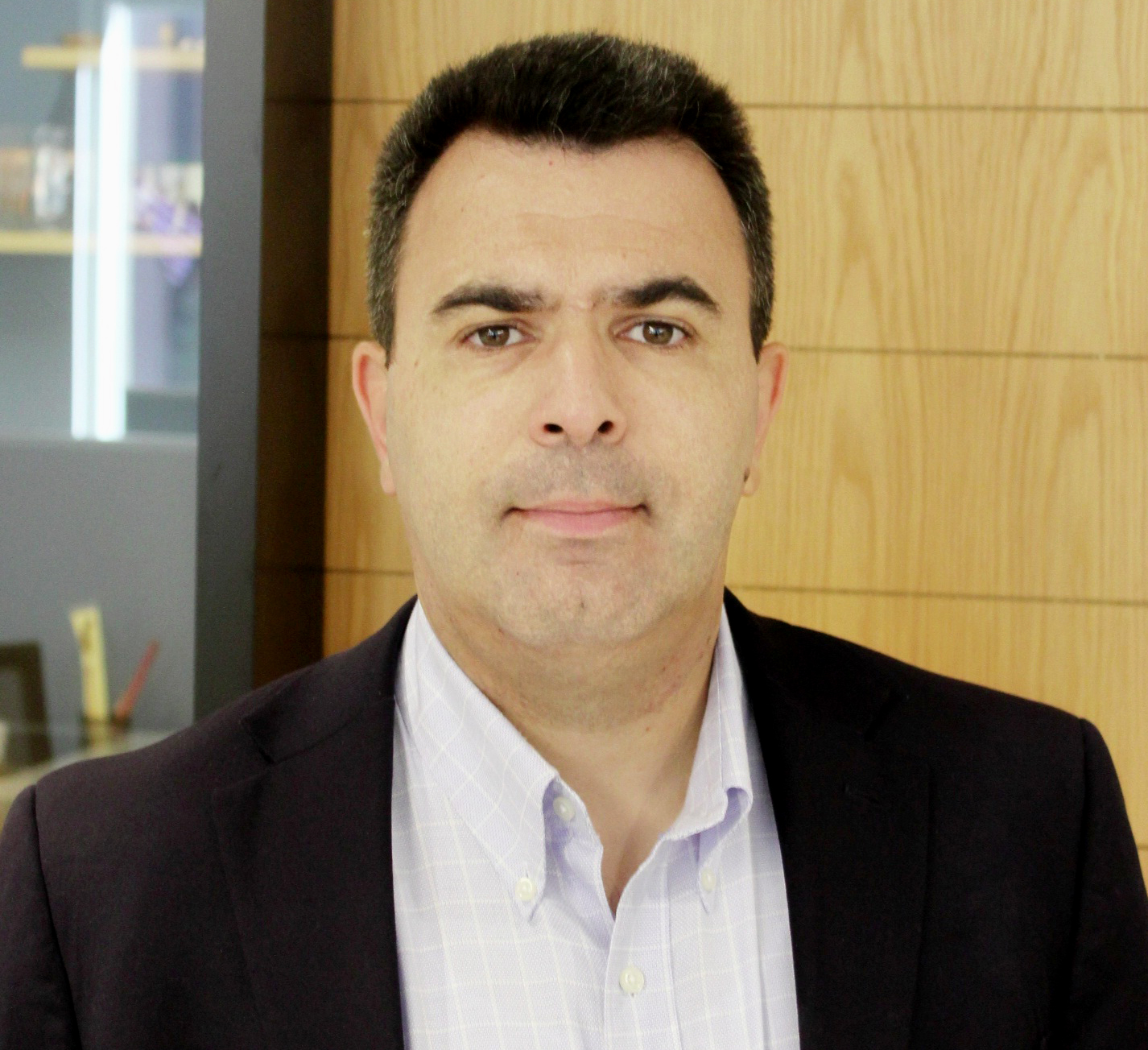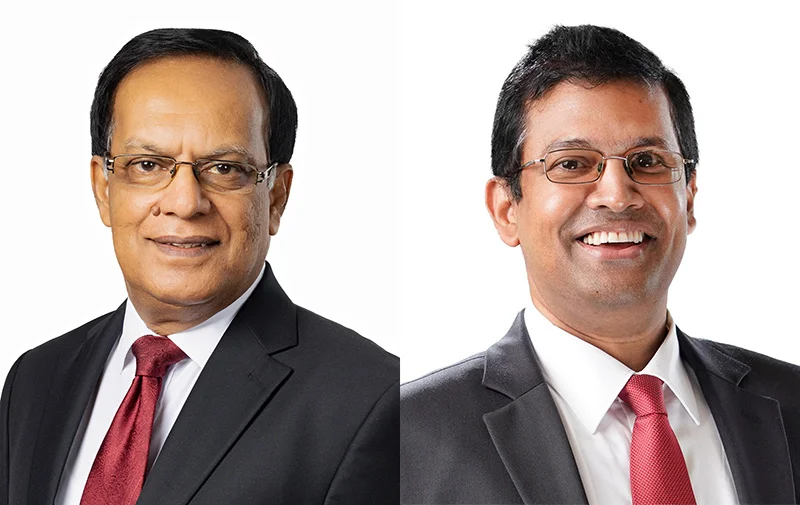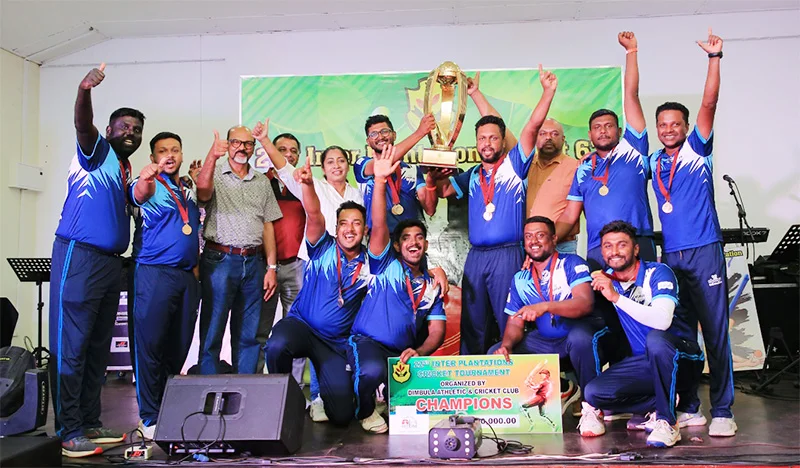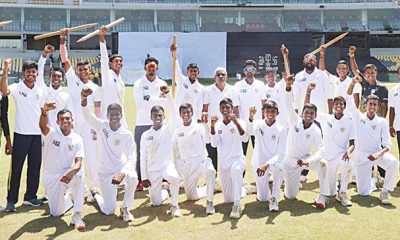Business
Sri Lanka’s apparel industry remains consistent in compliance and sustainability: WRAP Chief Avedis Seferian

Given the economic challenges faced by Sri Lanka and the implementation of new EU sustainability laws, companies are realizing the importance of streamlined compliance processes. Certification processes including Worldwide Responsible Accreditation Production (WRAP) offers sustainable solutions, reduces audit fatigue and provides comprehensive audit reports highlighting areas for improvement. The focus is on adopting independent certification, as legislative requirements increasingly mandate such initiatives and Sri Lanka’s apparel sector has made significant strides in embracing responsible manufacturing practices, with a focus on social compliance and sustainability.
As the world’s largest factory-based certification process for clothing, footwear and other sewn products, WRAP certifies facilities for compliance with the 12 WRAP Principles, which address safe, legal and ethical manufacturing processes. Sri Lanka has taken significant strides in embracing responsible manufacturing practices, with an impressive 27 companies and 112 individual factory sites currently holding the Worldwide Responsible Accreditation Production Certification.
In a recent interview, President and CEO of WRAP Avedis Seferian commended the resilience of Sri Lanka’s apparel industry amid the pandemic and unprecedented economic crisis, highlighting that companies under the certification programme have demonstrated unwavering commitment to social compliance and sustainability.
Following are excerpts from the interview:
Q1. With Sri Lanka navigating its way through the economic crisis and new EU sustainability laws gradually coming into effect, why is it important for companies to be certified and why now?
Given the current global economic challenges, the need for a streamlined and efficient due diligence process is paramount. Certification programmes like WRAP offer a more valuable proposition compared to buyers doing their own duplicative audits, by reducing the unnecessary audit fatigue, a term I am only too familiar with, experienced in the industry,. A WRAP certification provides a comprehensive audit report and points to the successful resolution of any non-compliances, making it a powerful proof of commitment to responsible sourcing. Legislative requirements are increasingly mandating the use of independent programmes, reinforcing the significance of organizations like WRAP. The focus is on communicating the importance of adopting independent certification rather than insisting on proprietary audits, as it saves time and resources while enhancing credibility. By embracing independent certification, brands and retailers can meet both their own standards and regulatory mandates, leading to a more efficient and compliant industry.
Q2. What progress has Sri Lanka’s apparel industry made in approaching ESG criteria as per WRAP’s observations?
The industry has done a great job of making responsible manufacturing a key part of its identity. Sri Lankan factories take social compliance and sustainability very seriously and have invested in promoting best practices. You can see this reflected in a number of ways: first, being consistent – many of the facilities currently holding a WRAP certificate in Sri Lanka have been with us a long time. Second, being proactive – while most factories will typically seek WRAP certification once a buyer requests one, many factories in Sri Lanka have gone for WRAP certification without a buyer request, as they believe WRAP is a benchmark for social compliance and sustainability. And third, going above and beyond minimum compliance – we routinely see Sri Lankan facilities instil extra worker-benefit practices, including things like employee welfare measures and women empowerment programmes. It has been very gratifying to see this positive approach to social responsibility become the norm in Sri Lankan factories. We consider it a very significant factor in the success the industry has had over the years and JAAF has done a great job in promoting Sri Lanka as a sourcing destination of choice.
Q3. What do you think are some of the common challenges faced by apparel manufacturers in achieving and maintaining compliance with ESG standards?
In my nearly 20 years of experience in this field, the most significant challenge we face worldwide is the prevailing short-term thinking among buyers and manufacturers. This mentality hinders the true potential for long-term planning and investment in vital areas like social responsibility and sustainability. The key difference lies in viewing something as a mere cost or as a valuable investment. An investment mindset considers the long-term returns associated with cost, while a short-term approach focuses on minimizing expenses.
For lasting improvements in social compliance and sustainability, an investment perspective is crucial, and this requires thinking beyond quarterly or immediate gains. However, fast fashion and public reporting pressures often deter businesses from making such investments due to delayed returns. Despite these challenges, Sri Lanka has garnered an excellent reputation in social compliance and sustainability, thanks to the efforts of JAAF and major manufacturers. The country’s facilities have demonstrated an above-average commitment to long-term thinking and compliance, laying the foundation for a virtuous upward spiral.
The global industry must overcome the prevailing short-term mindset and embrace a longer-term horizon to justify the necessary investments for sustainable and socially responsible facilities. This shift towards long-term thinking remains a universal challenge and is vital for creating a more sustainable and responsible future.
Q4: Moving forward, what are the key trends that apparel companies need to consider for compliance?
It is essential to have a clear sense of direction in their journey towards responsible practices. One of the key aspects to focus on, especially in the social space, is addressing forced labour concerns. Legislation on mandatory human rights due diligence, particularly in Europe, is driving attention to this issue, especially in supply chains involving migrant labour. Manufacturers need to ensure that all workers in their facilities are working voluntarily and this validation process must be independent, transparent and verifiable.
Traceability is another critical element, as laws and business realities increasingly demand visibility throughout the supply chain, even down to raw materials. Although this industry has faced challenges due to its fragmented nature, companies must strive to map out their supply chains to meet the growing demand for transparency from a wide range of stakeholders.
Furthermore, supply chain mapping will become crucial for addressing issues beyond forced labour including carbon emissions measurements. A holistic understanding of the supply chain will be vital in tackling these environmental concerns.
In summary, the immediate focus areas for companies’ compliance efforts should revolve around addressing forced labour concerns, ensuring transparency and traceability in the supply chain and taking proactive steps towards sustainable practices.
Q5. A significant overhaul to the labour laws is anticipated in Sri Lanka – the first since independence. With this labour reform, will WRAP reassess its social accreditation process for factories?
Regarding Sri Lanka’s latest labour law reforms, WRAP follows a dynamic and adaptive approach. For instance, if there are changes in the labour laws that dictate minimum salaries, WRAP’s protocol automatically updates its directives to reflect these new requirements. This flexibility ensures that WRAP remains compliant with the latest regulations without the need for a complete overhaul of the programme.
The concept of social responsibility is universal, but the specific actions required to be responsible vary from one location to another. Different regions have distinct labour laws and regulations, resulting in varying payment standards. WRAP acknowledges this and mandates that all entities under its certification comply with the applicable laws and regulations of their respective locations. Therefore, as labour laws evolve or change in Sri Lanka, WRAP seamlessly adjusts its protocols accordingly, always adhering to the most up-to-date legal requirements.
Q6. How is WRAP working collaboratively with buyers and manufacturers to address ‘audit fatigue’?
We’ve been actively addressing audit fatigue from both ends of the supply chain – assisting manufacturers while engaging in a robust dialogue with buyers. Our efforts have focused on helping buyers understand that insisting on their own audits is not the most effective approach. With WRAP, they can receive independent, efficient and credible audits, saving valuable time and resources.
We also aim to explain the benefits of relying on the WRAP report and certification, streamlining data delivery according to the buyers’ preferences through technology.
Overall, we believe that things are progressing in the right direction, though it’s an ongoing journey. We are committed to fighting the scourge of audit fatigue to enable manufacturers and buyers alike to strive towards more efficient and sustainable practices under a new supply chain due diligence paradigm where brands and retailers utilize independent, credible social compliance certification programs like WRAP instead of forcing production facilities to undergo duplicative audits by insisting on their own proprietary code audits.
Business
Seylan Bank posts a remarkable PAT of LKR 10 Bn for 2024

The Bank recorded a Profit before Income Tax (PBT) of LKR 16.04 Bn for the period under review with a 59% growth over the previous year, while recording a Profit after Tax (PAT) of LKR 10.05 Bn for the year with a 61% growth over the previous year, demonstrating a robust performance despite challenging macro-economic conditions. The reported PAT of LKR 10 Bn is the highest performance in the Bank’s 36 year history.
Net Interest Income of the Bank was reported as LKR 37 Bn in 2024 compared to LKR 40 Bn reported in 2023 with a decline of 8% corresponding to reduction in Net Interest Margins during 2024, due to reduction in market interest rates throughout the year.
Net fee and commission income of the Bank reported a growth of 7% to LKR 8 Bn compared to LKR 7.4 Bn reported in the previous year. The growth in 2024 was mainly due to increase in income from Cards, Remittances and other services relating to Lending.
The Bank’s net gains from trading reported a gain of LKR 0.46 Bn, a decrease of 44% over the gain of LKR 0.82 Bn reported in previous year due to exchange / interest rate changes.
Net gains / (losses) from de-recognition of financial assets reported a loss of LKR 0.26 Bn in 2024, compared to the gain of LKR 0.15 Bn reported in the previous year. The loss due to the restructuring of SLISBs amounted to LKR 2.71 Bn and was recorded in Q4 2024.
Other Operating Income of the Bank was reported as LKR 1 Bn in 2024, a growth of 5% over the previous year. This increase is mainly from foreign exchange income, which represents both revaluation gain/ (loss) on the Bank’s net open position and realized exchange gain/ (loss) on foreign currency transactions.
The Bank’s Total Operating Income decreased by 11.6% to LKR 44 Bn in 2024 compared to LKR 49 Bn in the previous year mainly due to decrease in net interest income and the loss on restructuring of SLISBs.
The Bank made impairment provision to capture the changes in the macro economy, credit risk profile of customers and the credit quality of the Bank’s loan portfolio in order to ensure adequacy of provisions recognized in the financial statements. The impairment charge on Loans and Advances and other credit related commitments amounted to LKR 6.6 Bn (2023 – LKR 15.5 Bn). The impairment reversal due to the SLISBs exchange amounted to LKR 4.9 Bn (2023 – LKR 1.5 Bn charge).
(Seylan Bank)
Business
An initiative to bring light into the lives of Galle residents

By Ifham Nizam
For decades, many rural communities in Sri Lanka have struggled with an unreliable power supply, outdated infrastructure, and slow responses from authorities. However, a new initiative aims to change this narrative, bringing hope to thousands in the Galle District who have long been in the dark—both literally and figuratively.
Speaking to The Island Financial Review, Dr. Chathura Welivitiya, CEO of HELP-O, an expert in infrastructure development, emphasizes the importance of this project, stating, “Access to reliable electricity is not just about lighting homes; it is about empowering communities, enabling education, fostering business opportunities, and ensuring overall development.”
He said in many villages, the lack of a stable electricity supply has hindered progress. Residents report frequent power outages, damaged lines left unattended for weeks, and new connections taking months—if not years—to be processed. Such issues have not only inconvenienced households but have also impacted local businesses, schools, and healthcare facilities.
According to a Weligama Municipal Council official: “Our children cannot study at night due to power failures. Businesses suffer because they cannot store perishable goods properly. We have raised complaints multiple times, but the response has been slow.”
Recognizing these challenges, a new project has been launched to address the inefficiencies in power distribution. The initiative includes:
Expansion of the Electrification Network: Efforts to extend power lines to remote areas that still rely on kerosene lamps or battery-operated sources.
Upgrading Infrastructure: Replacement of outdated transformers, damaged poles and weak wiring systems to ensure a stable and safe electricity supply.
Community Engagement: A digital reporting system that allows residents to highlight issues in real time, ensuring faster response and accountability from relevant authorities.
Sustainability Measures: Exploration of renewable energy options, such as solar power, to complement the grid and provide backup solutions for power outages.
Dr. Chathura explains, “This project is not just about fixing wires and poles; it is about creating a sustainable and efficient system that meets the growing energy demands of rural areas. Transparency and community participation are key to its success.”
The Southern Province Governor Bandula Haischandra has voiced strong support for the initiative, recognizing its potential to transform rural communities.
“Ensuring a stable electricity supply is a fundamental responsibility of the government, the Governor told The Island Financial Review. “For too long, these communities have been neglected. We are committed to fast-tracking infrastructure improvements and working closely with relevant authorities to resolve longstanding issues.”
The Governor further emphasized the role of accountability and efficiency in the implementation process. “We cannot afford delays and inefficiencies. With the use of modern technology, we are ensuring that complaints are addressed swiftly and that no village is left behind in development.”
Business
Elpitiya Plantations clinches fourth consecutive victory at Inter Plantation Cricket Tournament

Elpitiya Plantations emerged victorious at the 22nd Inter Plantation Cricket Tournament, organised by the Dimbula Athletic and Cricket Club, held on the 21st and 22nd of February 2025 at the Radella Cricket Ground.
The tournament saw participation from 11 plantation companies, showcasing exceptional talent and sportsmanship. Elpitiya Plantations, led by their dynamic captain Wajira Mannapperuma, demonstrated outstanding performance throughout the tournament.
The winning team from Elpitiya Plantations consisted of Wajira Mannapperuma, Asela Udumulla, Dilukshan Neshan, Lakshan Thenabadu, Kavinda Sulochana, Yasitha Koswaththa, Anushka Baddevithana, Kanishka Ranchagoda, Pramoth Bandara, and Sajith Edirisinghe.
In the semi-final match, Elpitiya faced Horana Plantations PLC and secured a decisive victory by bowling out the Horana team for just 20 runs within 4 overs, paving their way to the finals. The final match was a thrilling encounter against Talawakelle Tea Estates PLC, where Elpitiya’s formidable bowling lineup made it challenging for Talawakelle to score. Within the first four overs, Talawakelle’s top batsmen were back in the pavilion, allowing Elpitiya to clinch the championship title with ease.
This victory marks Elpitiya Plantations’ fifth overall win in the history of the tournament and their fourth consecutive triumph, having previously won in 2022, 2023, and 2024. The team’s consistent performance and dedication have solidified their reputation as a formidable force in plantation cricket.
The management of Elpitiya Plantations extends heartfelt congratulations to the team and expresses gratitude to all the supporters and organisers who made this event a grand success.
-

 Business3 days ago
Business3 days agoSri Lanka’s 1st Culinary Studio opened by The Hungryislander
-

 Sports4 days ago
Sports4 days agoHow Sri Lanka fumbled their Champions Trophy spot
-

 News6 days ago
News6 days agoKiller made three overseas calls while fleeing
-

 News5 days ago
News5 days agoSC notices Power Minister and several others over FR petition alleging govt. set to incur loss exceeding Rs 3bn due to irregular tender
-

 Features4 days ago
Features4 days agoThe Murder of a Journalist
-

 Sports4 days ago
Sports4 days agoMahinda earn long awaited Tier ‘A’ promotion
-

 Features4 days ago
Features4 days agoExcellent Budget by AKD, NPP Inexperience is the Government’s Enemy
-

 News5 days ago
News5 days agoMobile number portability to be introduced in June











